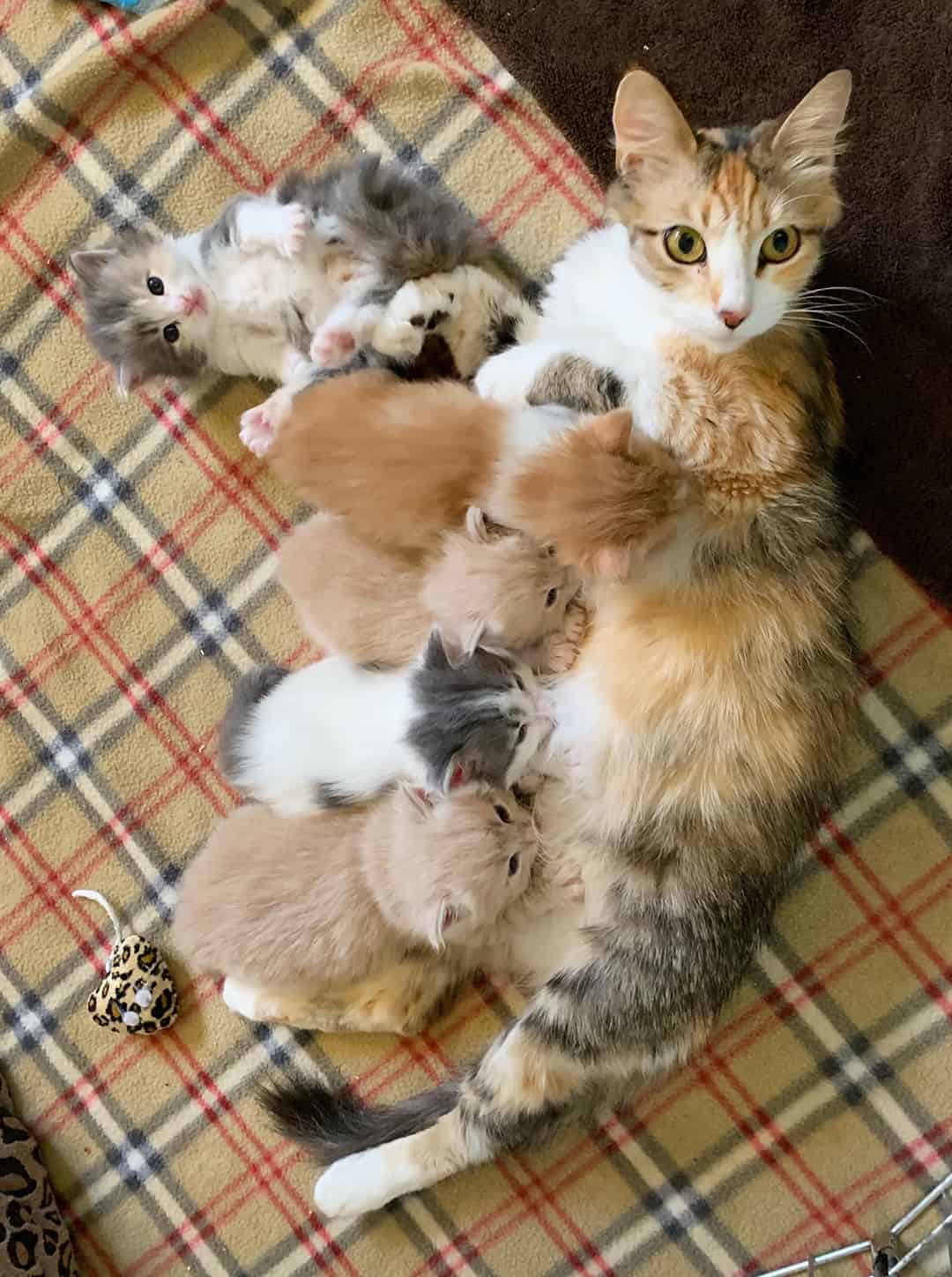You’ve just found a litter of kittens, NOW WHAT?

You’re likely to hear them before you see them. The sound of tiny kittens mewing.
They appear alone, defenseless and in danger. The mama cat is nowhere in sight.
Each Spring as the weather warms up, unspayed female cats look for safe places to nest and give birth. Often these nests are under houses, in garages or sheds, under bushes or in other sheltered locations. Sometimes these nests are in dangerous places, such as under a car or in piles of debris or trash that may be disturbed or moved, or in locations that could be accessible by predators.
What should you do if you find a litter of kittens? Your instinct will probably be to save and protect those kittens, but it’s important not to be too hasty or judgmental. Do not assume that the mother has abandoned her litter. It is just as likely that she is searching for something to eat or scouting out better accommodations. What you do next will depend on how and where you found the kittens, whether their mother is around, and how old they are.
Step #1: Wait & Watch. If the nest isn’t in immediate danger, do not disturb the kittens. If possible, observe them from a distance for a few hours to determine if mom is returning to her nest. The mother cat may be out searching for food, taking a break, or even hiding from you. While doing so, try to read the visible cues that reveal the health of the kitten(s). Look for signs to indicate that they may have been without care for a significant amount of time: crying or squalling due to lack of nutrition, fur that is matted or dirty, severely underweight, or significant lethargy.
Step #2: Time and Space. Once you’ve assessed the situation, if there is no immediate danger and the kittens appear healthy and clean, give the queen time to return. Most cats, particularly if they are feral, are not likely to return if they smell or see humans. While they don’t want to abandon their litter, innate self-preservation will cause this behavior. Leave for several hours to give them the time and space to return. You can go back and check on the situation in 4-6 hours.
Note: If you find the kittens are in dire need of medical attention, starving, or vulnerable to predators, then you can remove them immediately.
Step #3: Return Visit. After several hours, return and check on the nest. If mom has not returned but all looks well, give it a bit more time. Try again the next day. You want to give the mother as much time as possible to return to her litter, which will give the kittens the best chance for survival. Not only do nursing kittens need nutrition from their mama, they also receive antibodies and immune support from her milk. Therefore, it is inadvisable to remove them unless absolutely necessary.
Step # 4: Depends on the Queen. If the mama cat returns and she’s friendly, then try to create a safe space for her and the kittens indoors, isolated from your other household pets. Provide a temporary area for them with a bed, clean litter box, fresh water, and cat food.
If the queen returns but seems feral or too frightened to approach, leave the family where they are and provide food, water and shelter (a box or carrier). The mother may move the kittens, but do not worry. If she knows this is a safe place with a stable food source, she’ll return with them.
If it’s been a few hours and there’s no sign of the queen, then you will need to intervene especially if the kittens are too young to run around. For tiny kittens, make a nest in a box or carrier with clean, soft fabric (fleece or flannel—no terry cloth!) and a heating pad set on LOW. For older kittens, contain them in a larger carrier for transport to ASAP. Unweaned kittens need round-the-clock care and monitoring.
Step # 5 Contact ASAP—we are here to help! Once you have assessed the situation, call our Community Cats & TNR Program Director Gina Sunseri at 805-319-9724 or communitycats@asapcats.org. You can also bring the family directly to ASAP during our normal shelter hours. If you have not been able to secure the queen and kittens we can assist you with trapping.
Call us immediately if the kittens or mom show any signs of lethargy, illness, injury, or distress—and unless you are an experienced foster, do not attempt to feed tiny kittens!
